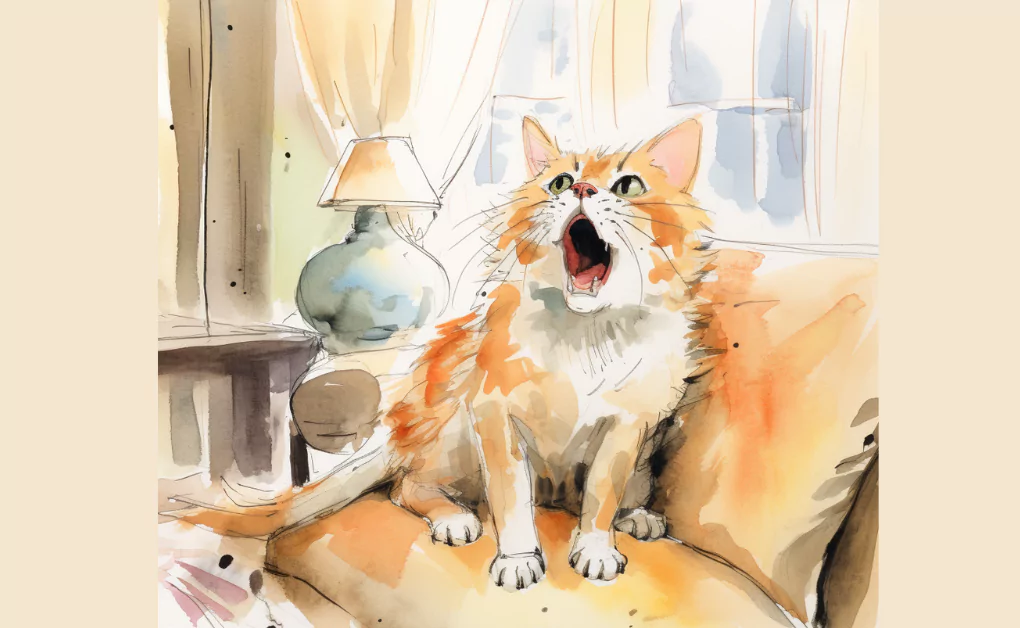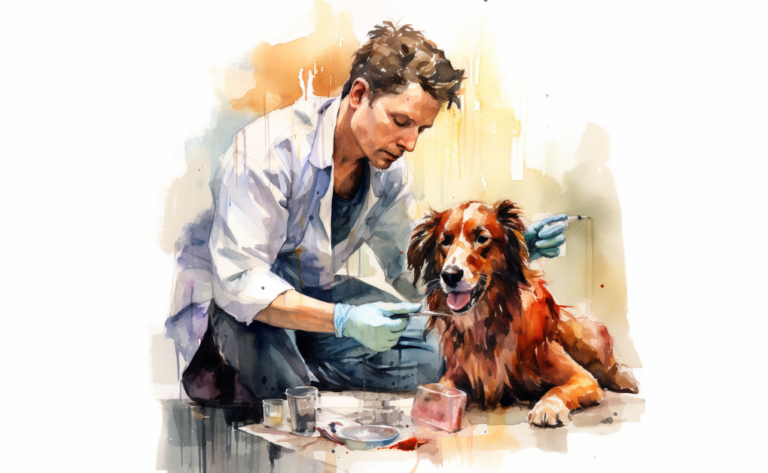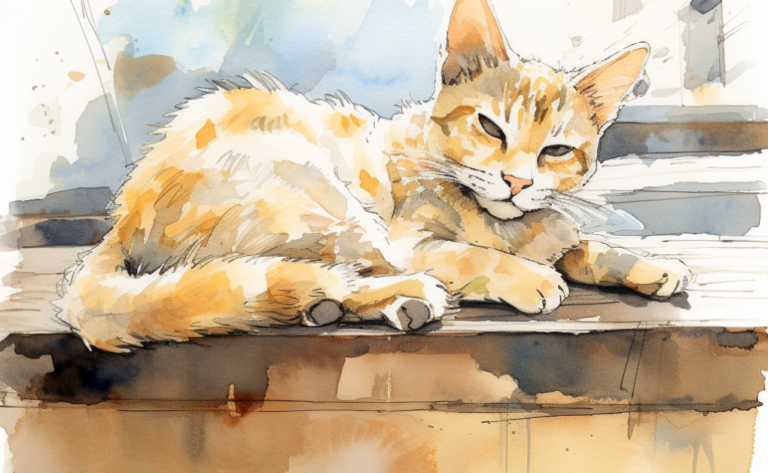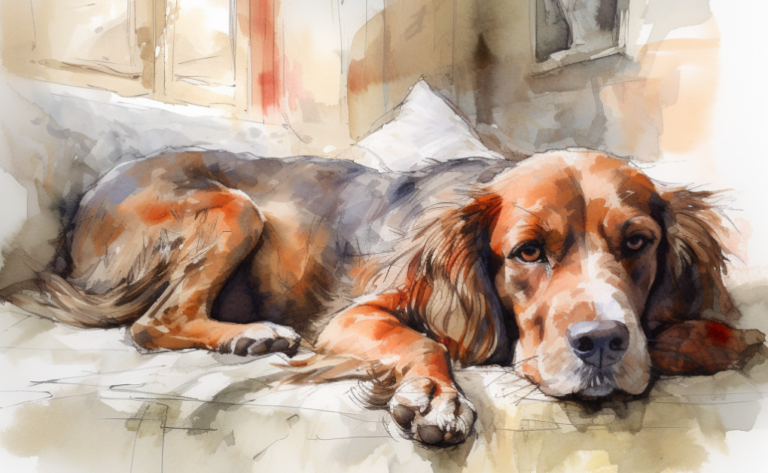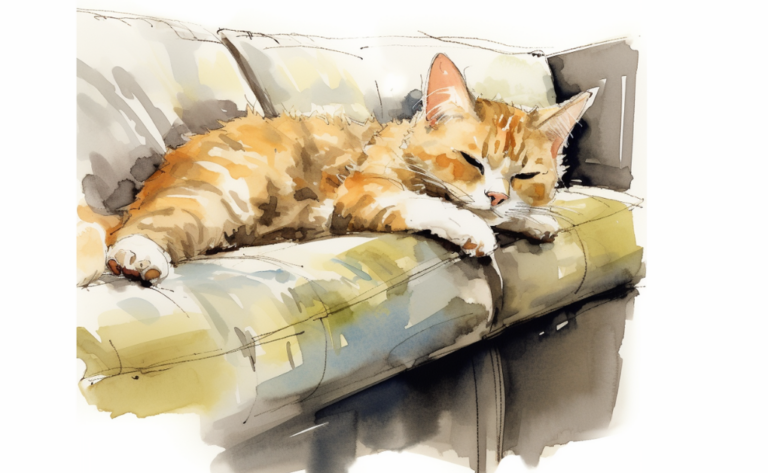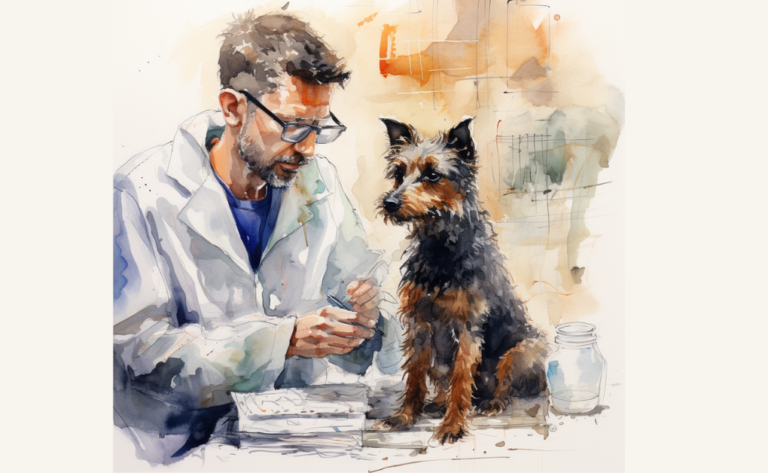What is Coughing in Cats
What is it?
How is it Treated?
Breed Predispositions
Siamese Himalayan Persian Burmese Devon Rex
Introduction
As Lisa snuggled up on the couch with her beloved Siamese cat, Luna, she suddenly heard a peculiar sound coming from her furry friend – a cough. Concerned and unfamiliar with this symptom in cats, she quickly started researching and booked an appointment with her veterinarian.
Cat coughing is a reflexive action that purges the respiratory system of nuisances or obstructions. It entails an abrupt discharge of air from the lungs through the mouth. Various processes within the respiratory system, including the larynx and trachea, often called the windpipe, can trigger a cat to cough. It aims to eject any foreign substances or mucus from the air passages as a protective response.
Understanding the phenomena of coughing in cats is vital for identifying potential respiratory complications. Notably, coughing is a common symptom requiring appropriate veterinary care to tackle root causes. While it’s normal for cats to cough occasionally, chronic coughing may cause inflammation and needs prompt attention.
Common Causes of Coughing in Cats
Like humans, cats can be susceptible to allergies that may trigger various symptoms, including coughing. With approximately 1% of all household cats in the United States, or around 800,000, affected by this issue, understanding the various causes of a cat’s cough is vital. There are several main reasons why a cat may be coughing:
- Respiratory Infections: Felines can contract upper respiratory infections from viruses or bacteria such as feline viral rhinotracheitis or feline calicivirus. These infections can lead to various respiratory symptoms, including coughing, sneezing, and nasal discharge.
- Asthma: A prevalent condition in cats, asthma is marked by inflammation and constriction of the airways, triggering coughing as a key symptom. Allergens, stress, or physical exertion can set off asthma attacks in cats.
- Heart Disease: Some heart conditions, such as hypertrophic cardiomyopathy or congestive heart failure, can result in fluid buildup in the lungs. This leads to coughing as the body attempts to clear the airways.
- Allergies: Cats may react to environmental allergens like pollen, dust mites, or specific foods. Allergic reactions can lead to coughing, sneezing, itching, and other respiratory or skin symptoms.
- Foreign Bodies: Curious cats exploring their environment may accidentally ingest or inhale small objects. These foreign bodies can get stuck in the respiratory tract, causing irritation and coughing.
- Tumors: Though uncommon, tumors or growths in the respiratory system, such as lung cancer or nasal polyps, can lead to coughing as a symptom.
Other causes of cat coughing can include heartworm disease, bacterial infections like Bordetella bronchiseptica, and fungal infections, each contributing to the array of reasons why a cat might cough. If your cat has a persistent or concerning cough, it is crucial to seek veterinary attention for proper evaluation and diagnosis.
When Should You Worry About Cat Cough?
You should be concerned about your cat’s cough if it persists over a few days, worsens over time, or experiences frequent and prolonged coughing spells. A persistent and forceful cough that is severe and disruptive to your cat’s daily activities is also a cause for concern. Additionally, if your cat exhibits other symptoms, such as difficulty breathing, wheezing, nasal discharge, lethargy, loss of appetite, or weight loss, it may indicate a more serious underlying condition.
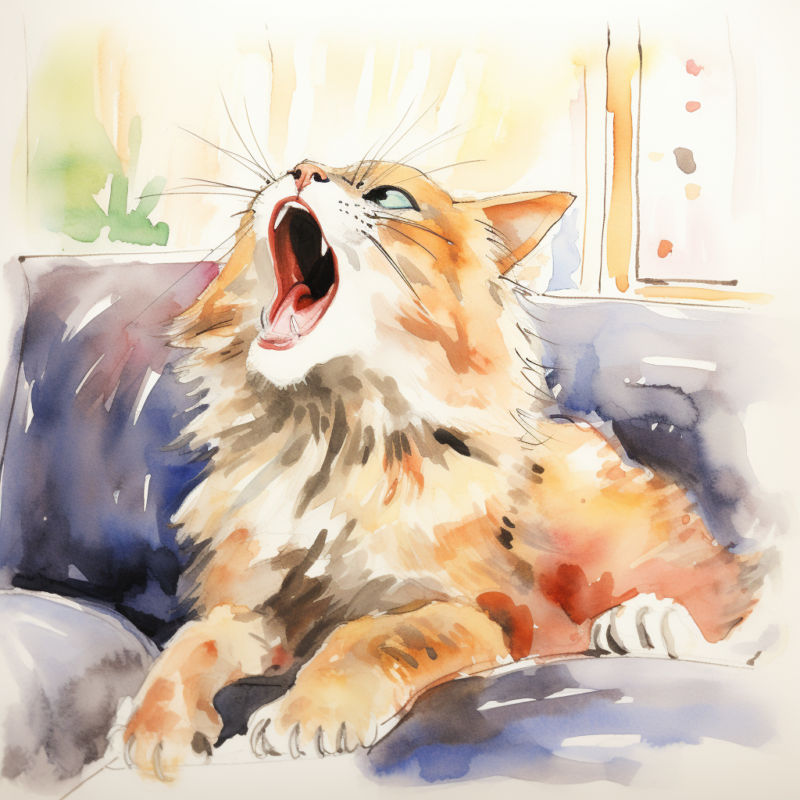
It’s important to understand that coughing in cats can be a symptom of various health issues, including respiratory infections, asthma, heart disease, allergies, or lung tumors. Since cats are adept at hiding signs of illness, it’s crucial not to ignore or dismiss a persistent cough. If you have any concerns about your cat’s cough, it’s recommended to consult with a veterinarian. They can conduct a thorough examination, perform diagnostic tests if necessary, and provide appropriate treatment based on the underlying cause of the cough. Early detection and intervention can help prevent further complications and ensure your cat’s well-being.
Diagnosis of Feline Cough
Determining the cause of a cat’s cough involves a comprehensive evaluation by a veterinarian who may employ several diagnostic techniques, including:
- Physical Examination: A thorough physical examination is a starting point. The vet will listen to the cat’s lungs and heart and examine them for any signs of respiratory distress or abnormalities. If your cat’s cough persists, take them to the vet.
- Medical History: Gathering details about the cat’s medical history, such as recent illnesses, exposure to other animals or changes in the cat litter, vaccination records, and any shifts in behavior or environment, can offer vital insights into the cough’s root cause.
- Imaging: Chest X-rays can be crucial for evaluating the condition of the cat’s lungs and heart, helping to identify any anomalies such as fluid buildup, tumors, or signs of infection, which can be indicative of respiratory disease or cancer in cats.
- Laboratory Tests: Blood tests can help assess the overall health of the cat, look for infection markers, evaluate organ function, and exclude certain diseases. Depending on the suspected cause of the cough, additional tests, like respiratory pathogen or allergy testing, may also be done.
- Fecal Examination: If respiratory parasites like lungworms are suspected, a fecal examination might be conducted to identify the presence of parasites or their eggs.
- Airway Sampling: In certain situations, the vet may use airway sampling techniques, such as bronchoscopy or tracheal wash, to collect samples from the respiratory tract for further examination. This can help identify specific pathogens, inflammatory cells, or abnormal cell growth.
The individual case and the suspected cause of the cat’s cough determine the specific diagnostic approach. A blend of physical examination, medical history, and diagnostic tests helps veterinarians identify the root cause of the coughing and formulate an appropriate treatment plan. Pet parents should be vigilant and consult the vet if they notice their cat may be coughing due to a chronic cough or common feline respiratory disorder.
Treatment for Cat Cough
Addressing a cough in cats depends on identifying and addressing the root cause, and it typically requires a multifaceted approach tailored to the specific condition of the affected cat. Here are some commonly used strategies to address this symptom:
Medication Administration
Different types of medications may be utilized depending on the underlying cause of the cough. Antibiotics could be administered for bacterial respiratory infections, bronchodilators might ease the airways in asthma cases, and antiparasitic drugs could be given to eliminate parasites causing respiratory distress.
Anti-Inflammatory Treatment
Inflammation in the lungs can lead to coughing. Anti-inflammatory drugs, like corticosteroids, may be prescribed to decrease airway inflammation and alleviate the cough.
Symptomatic Relief
Cough suppressants or antitussive medications can provide temporary relief, allowing the cat to rest. However, these are used judiciously, only when required, since coughing is often the body’s natural defense mechanism to clear the airways.
Supportive Care
Certain supportive measures can help alleviate coughing symptoms. This could include using a humidifier or steam therapy to moisten the airways and lessen the irritation. Keeping the cat in a serene, stress-free environment can also help minimize triggers that could exacerbate coughing episodes.
Addressing Underlying Conditions
If the cough is a symptom of an underlying condition such as heart disease, respiratory infection, or allergic bronchitis, it’s crucial to treat the cause. This may involve specific treatments, like managing heart disease with medications or handling allergies through allergen avoidance or immunotherapy.
If your cat is exhibiting a persistent cough, it should be examined by a vet for an accurate diagnosis and an appropriate treatment plan. They will consider the cat’s overall health, medical history, and specific symptoms to formulate a tailored approach to treatment. Regular monitoring and follow-up visits will be essential to evaluate the cat’s response to treatment and make any necessary adjustments.
Prevention of Kennel Cough in Felines
Preventing coughing in cats requires pet owners to be proactive in managing several aspects of their cat’s health and environment:
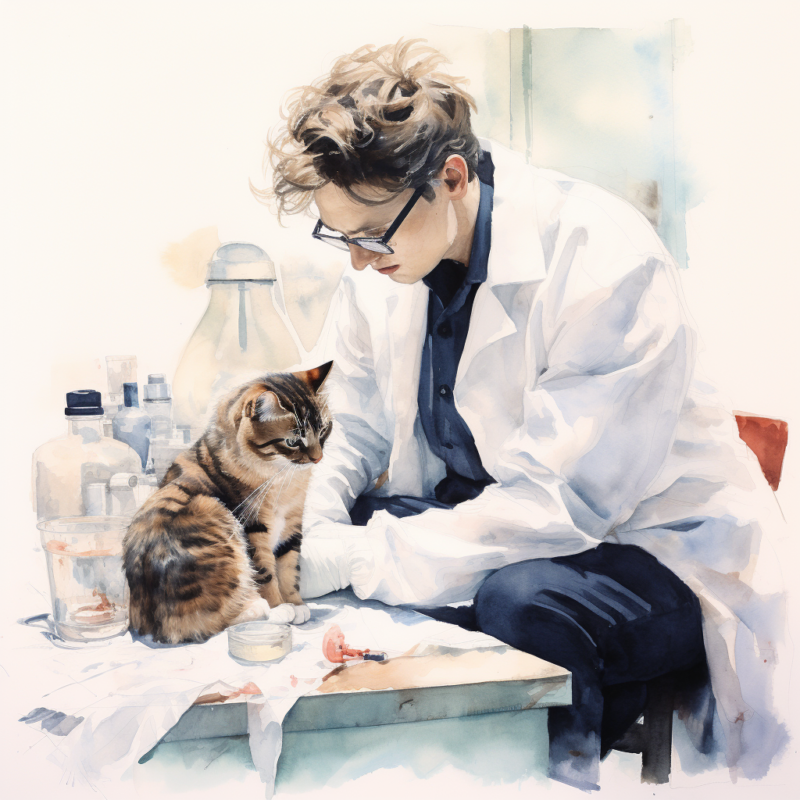
- Immunization: Ensure your cat receives regular immunizations for respiratory ailments such as feline herpesvirus and feline Calicivirus. Vaccination is a form of preventative care that can shield your cat from infectious diseases that lead to coughing.
- Maintaining an Indoor Environment: Keeping your cat indoors can reduce exposure to outdoor irritants, allergens, and infectious agents that can trigger a cough. This strategy helps lower the risk of respiratory infections and exposure to other irritants.
- Avoiding Smoke and Chemicals: Keep your feline companion away from cigarette smoke, aerosol sprays, cleaning products, and other airborne chemicals. These can irritate the cat’s respiratory system and provoke coughing.
- Respiratory Hygiene: Practice good respiratory hygiene by covering your mouth and nose when coughing or sneezing, particularly if you have an upper respiratory infection. This can help prevent the transmission of respiratory infections to your cat.
- Control of Allergens: Identify and manage any allergens that may cause your cat to cough. This may include reducing exposure to common allergens such as dust mites, pollen, or certain foods. Your veterinarian can guide allergen control strategies.
- Routine Veterinary Check-ups: Regular wellness visits to your vet play a critical role in monitoring your cat’s overall health and addressing any concerns. Regular check-ups can help diagnose the cause of any early signs of coughing before they escalate.
- Managing Stress: Stress can weaken your cat’s immune system and make them more susceptible to respiratory infections. Minimizing stress in your cat’s environment is crucial. Providing a calm and comfortable living space, ample mental and physical stimulation, and positive interactions can reduce stress.
- Healthy Diet: Feeding your cat a balanced, nutritious diet supports a strong immune system and overall health. Ensure your cat always has access to fresh, clean water to maintain hydration.
Remember to consult your veterinarian for personalized advice on preventive measures based on your cat’s unique needs and medical history. They can provide specific recommendations to maintain cat health, reduce the risk of coughing, and manage seasonal pet care. If you notice your cat coughing, experiencing other symptoms, or cannot breathe properly, take them to the vet. Remember that effective prevention often depends on the cause and ensuring no inflammation of the lungs or obstruction in the back of the throat occurs.
Frequently Asked Questions
Disclaimer: The information provided on this veterinary website is intended for general educational purposes only and should not be considered as a substitute for professional veterinary advice, diagnosis, or treatment. Always consult a licensed veterinarian for any concerns or questions regarding the health and well-being of your pet. This website does not claim to cover every possible situation or provide exhaustive knowledge on the subjects presented. The owners and contributors of this website are not responsible for any harm or loss that may result from the use or misuse of the information provided herein.

